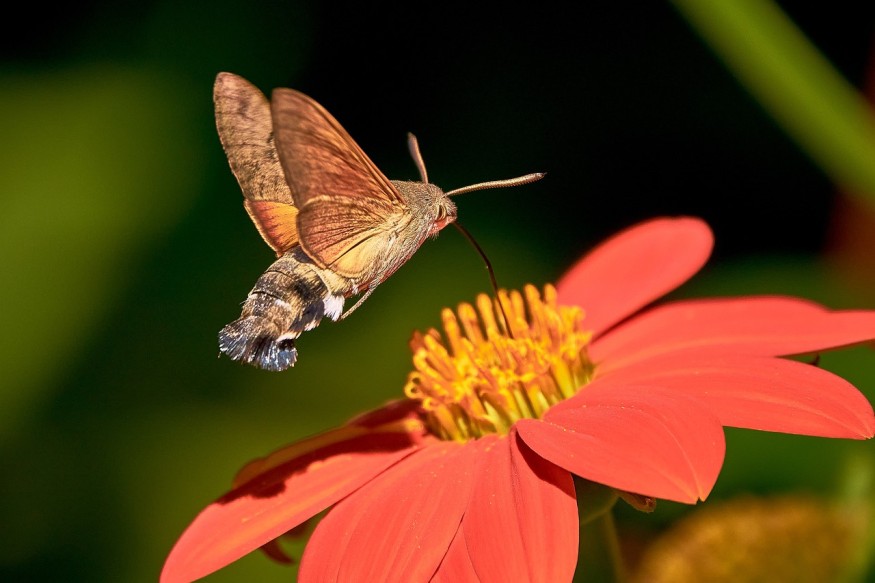Researchers from the University of Sussex have discovered that moths pollinate more efficiently at night than day pollinators like bees.

Moths and Their Efficient Pollination
Phys reports that the vital findings regarding moths and their efficient pollination come amid rising concerns regarding the drastic decline of pollinating insects in the wild, such as butterflies and bees. Now, considering their pollination efficiency, moths could be important nature players.
As per Earth.com, the researchers looked into ten areas across southeast England. They specifically focused on bramble flower pollination. By doing so, they found that 83% of insect visits occurred during the day.
Compared to other creatures, moths only made fewer stops over the shorter nights during summer. In fact, they only accounted for 15% of the visits. Despite these numbers, moths pollinated the flowers faster.
These findings led to the conclusion that moths are more efficient when it comes to pollination compared to other diligent day-fliers, such as bees. Though insects that flew during the day had more time to pollinate, moths working the night shift contributed greatly. The study was reported in the PLOS One journal.
Moth Decline
Fiona Matthews, a co-author of the study and an environmental biology professor from the University of Sussex, says that bees are undeniably important. However, their work has demonstrated that the flower pollination of moths is faster compared to bees working during the day.
The sad thing is that moth populations are facing grave declines across Britain. This has impacted pollination and the food supply of several species, from birds to bats.
The study thus demonstrates that simple measures, like enabling bramble patches to bloom, can serve as vital food supplies for these creatures.
Nocturnal Pollinators
While the study highlighted the vital role moths play in pollination, it also stressed the importance of bramble, which is a shrub that is typically cleared away. Though several individuals consider the plant unfavorable, it is crucial for pollinators to work at night.
The researchers looked into the contribution of insects, both day- and night-working, to bramble pollination. They examined the count of insect visitors by employing a camera trap. They looked into the speed of pollen depositing at various times by experimentally hindering some insects from checking out the flowers while leaving others unbothered.
Dr. Max Anderson, who was a then-Ph.D. student co-authored the study and is currently the South West Landscape Officer for Butterfly Conservation; he notes that though moths are vital pollinators, they lack appreciation and study focus. Most research focuses on pollinators that work during the day, leaving behind nocturnal pollinators.
Considering how moths are now known to be vital pollinators, supporting them by encouraging the growth of bramble and other flowers is vital.
Overall, the research demonstrates that both day- and night-flying pollinators should be protected for the flourishing of natural ecosystems. The scientists call for the public in the UK to protect moths by turning off night lights, growing rough grass patches, and letting bramble grow.
Check out more news and information on Environment and Climate in Science Times.












